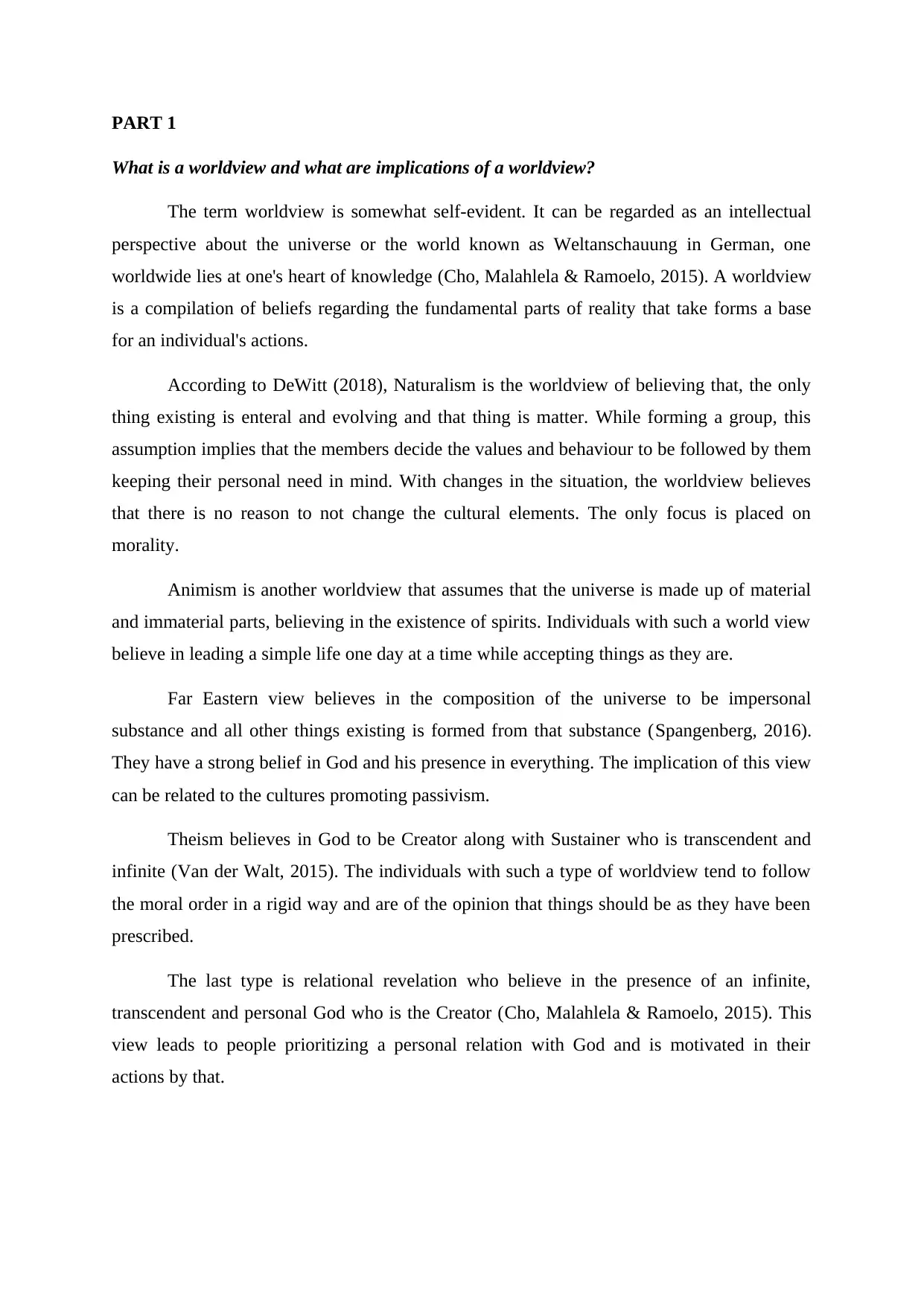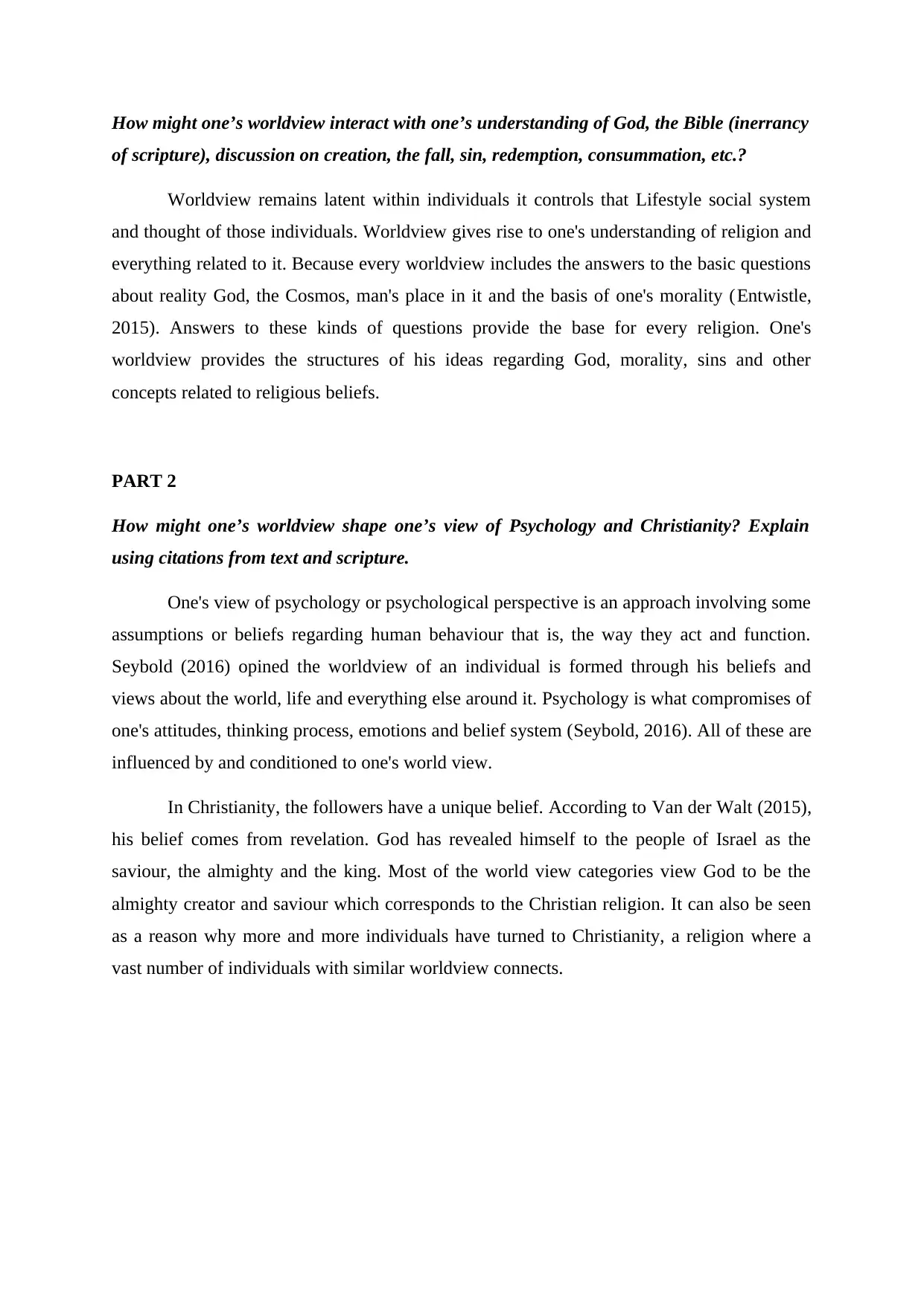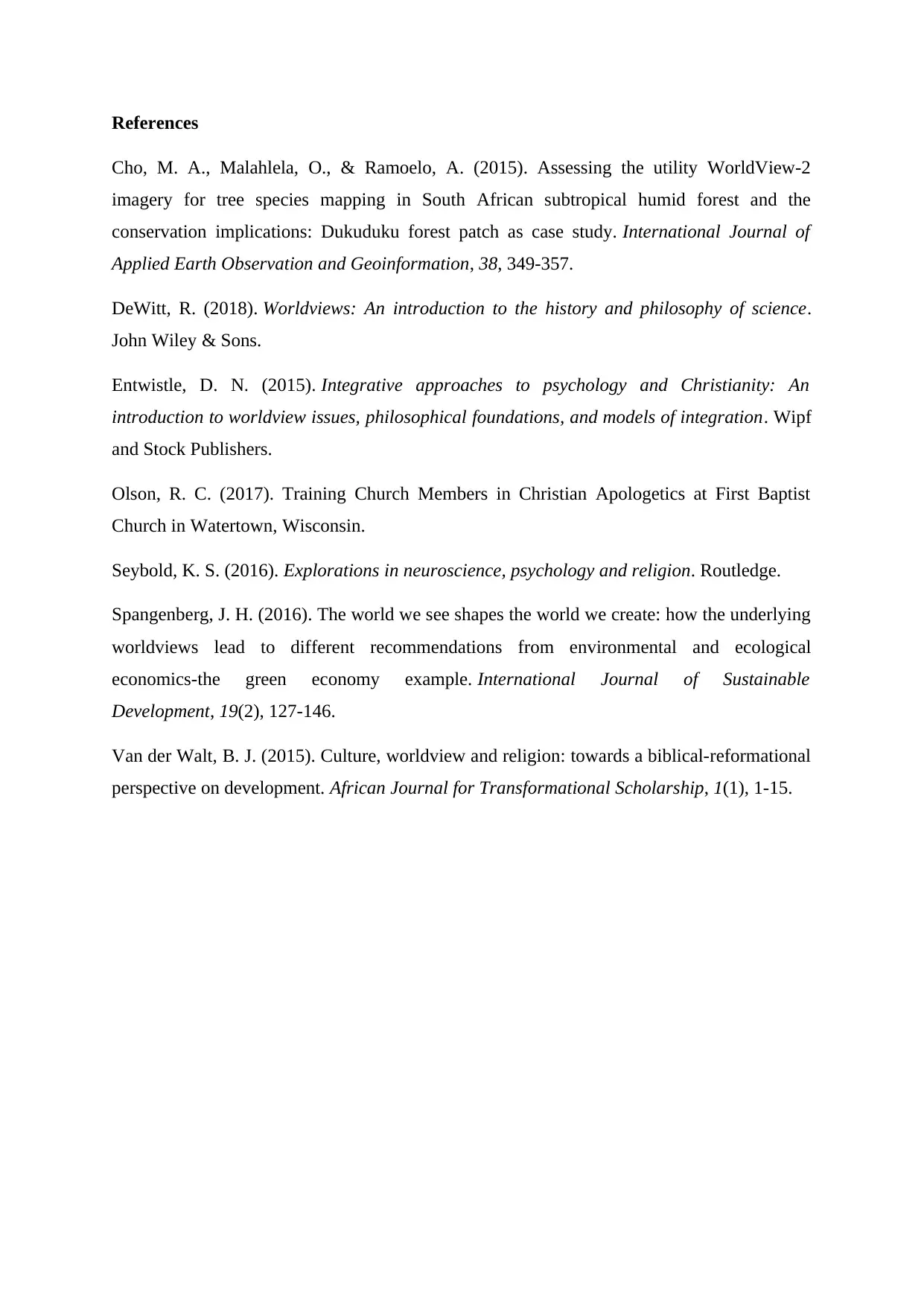The Impact of Worldview on Psychology and Christianity: A Discussion
VerifiedAdded on 2022/10/19
|4
|987
|328
Homework Assignment
AI Summary
This assignment delves into the multifaceted concept of worldview, exploring its definition and significant implications across various domains. It examines different worldviews, including Naturalism, Animism, Far Eastern views, Theism, and Relational Revelation, highlighting their core beliefs and the impact on individual actions and cultural values. The paper further analyzes how worldview shapes one's understanding of God, the Bible, and related concepts such as creation, sin, and redemption. Part 2 of the assignment investigates the interaction between worldview and one's perspective on psychology and Christianity, supported by citations from relevant texts and scripture. The analysis emphasizes how worldview influences attitudes, thinking processes, emotions, and belief systems, particularly within the context of Christianity. The paper concludes by reinforcing the importance of worldview as a fundamental framework that shapes individual beliefs, behaviors, and interpretations of the world.
1 out of 4











![[object Object]](/_next/static/media/star-bottom.7253800d.svg)